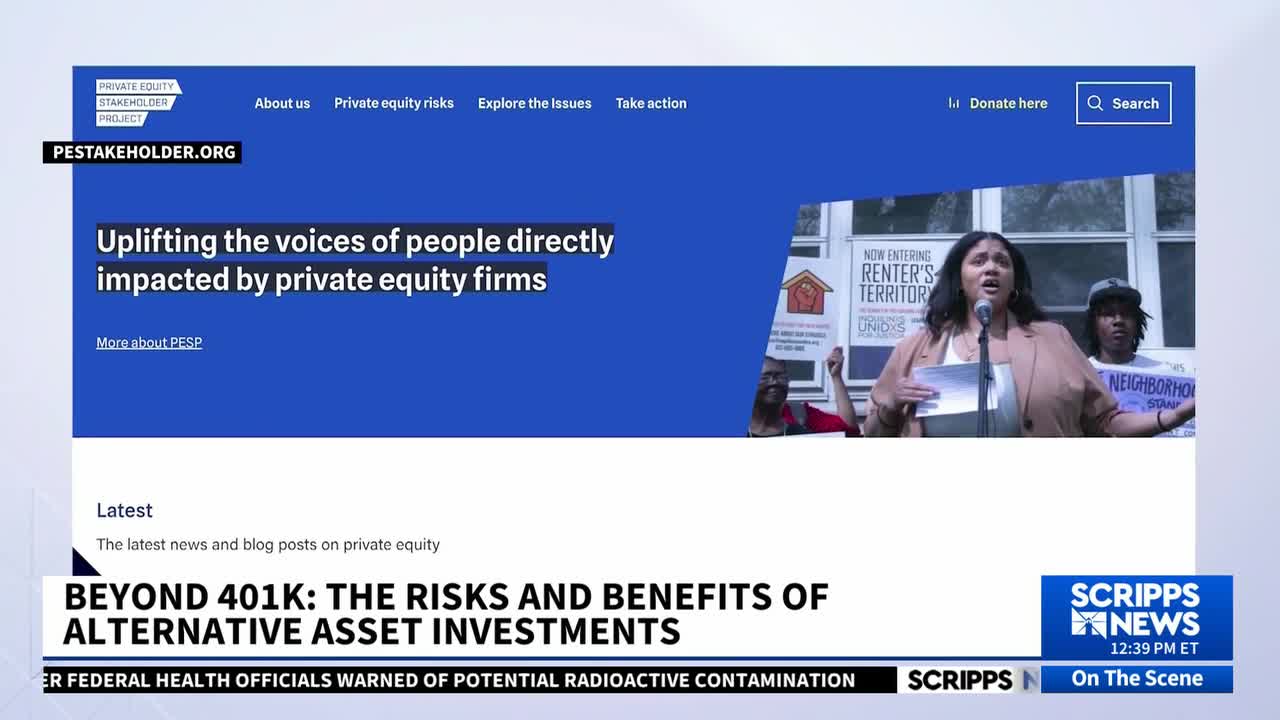If you take advantage of your company’s 401(k) retirement plan, your money is most likely invested in a mix of stocks and bonds.
A controversial Trump administration policy change, however, aims to expand those options — allowing retirement savings to be invested in private equity firms, which may include less liquid and more volatile assets such as real estate or cryptocurrency.
“The asset classes, they do have a higher rate of returns, so that’s a good thing. It allows you to diversify your portfolio even more. So that’s a good thing. But there are risks involved,” said Chip Lupo, a writer with WalletHub.
RELATED STORY | Changing jobs? Don't let hidden 401(k) fees derail your retirement savings
Lupo added that people stand a chance to lose much more money in a short period when investing in riskier assets. Those risks have kept many plan managers from embracing the idea.
Chris Noble, policy director with the Private Equity Stakeholder Project, said there are serious drawbacks with private equity firms.
“These funds are able to do their internal rate of return without eyes on how are they conducting the evaluation, you know, eyes on the underlying portfolio assets. Stuff that’s a lot easier to see or disclose when it comes to public companies,” he said.
The Employee Retirement Income Security Act, also known as ERISA, requires employers to act in the best fiduciary interest of their employees, and Noble said adding uncertain assets may put workers at financial risk.
“When it’s harder to measure the performance of certain investments, it’s harder to know — should I be paying this much in fees for investment management if you are not able to get as much insight,” Noble said.
Still, some experts argue that doesn’t mean everyone should avoid them. These investments can yield higher returns over time.
“If you have a decade or two to be able to withstand the ebbs and flows — you should probably put a small percentage, maybe 1 or 2%, into these alternatives if you fully understand them,” Lupo said.
There’s no law preventing retirement plans from investing in private equity funds, and the concept itself isn’t new. But many companies may wait until the Department of Labor and the SEC establish a regulatory framework with guidance on how to proceed while minimizing risk.




